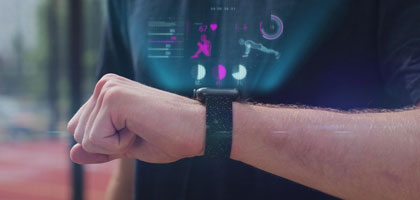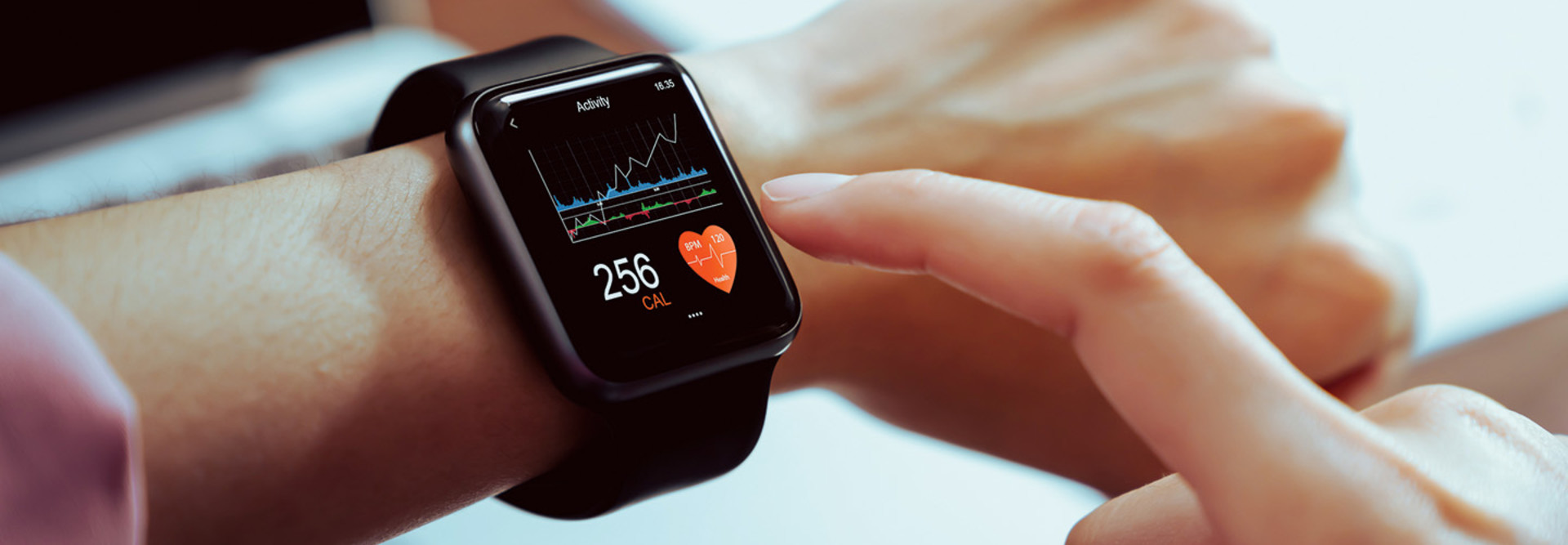Wearable Tech: How Smartwatches Are Transforming Health Tracking:
The sleek device on your wrist isn't just telling time anymore. It's counting your steps, monitoring your heart rate, and even alerting you to potential health concerns. Wearable technology, spearheaded by the evolution of smartwatches, is fundamentally changing how we understand and manage our health. Gone are the days of infrequent doctor's visits providing snapshots of our well-being. We're now entering an era of continuous data collection, offering personalized insights and empowering individuals to take proactive control of their health journeys.
The Rise of the Smartwatch as a Health Hub

The transformation from a simple timekeeping device to a sophisticated health tracking tool has been rapid. Early smartwatches primarily focused on connectivity, offering notifications and basic activity tracking. However, advancements in sensor technology, miniaturization, and battery life have enabled a new generation of devices capable of monitoring a wide array of physiological parameters.
Key Health Tracking Features
Modern smartwatches boast an impressive suite of health-related features:
*
Heart Rate Monitoring: Optical sensors continuously measure heart rate, providing valuable data for fitness tracking, stress management, and early detection of heart irregularities like atrial fibrillation.
*
Activity Tracking: Step counting, distance traveled, calories burned, and active minutes are automatically recorded, encouraging users to meet daily activity goals.
*
Sleep Tracking: Smartwatches monitor sleep stages (light, deep, REM), providing insights into sleep quality and duration, which can be crucial for overall health and cognitive function.
*
Blood Oxygen Saturation (SpO2): Many devices now estimate blood oxygen levels, a vital indicator of respiratory health, especially relevant in the context of conditions like sleep apnea and certain respiratory illnesses.
*
Electrocardiogram (ECG/EKG): Some smartwatches offer single-lead ECG capabilities, allowing users to record and share their heart rhythm with their doctors, potentially aiding in the diagnosis of heart conditions.
*
Fall Detection: These devices can detect sudden falls and automatically alert emergency contacts or services, a particularly important feature for older adults or individuals with mobility issues.
*
Stress Tracking: By analyzing heart rate variability and other physiological data, smartwatches can estimate stress levels, prompting users to engage in relaxation techniques or mindfulness exercises.
*
Skin Temperature Monitoring: Certain smartwatches can monitor skin temperature, which can be helpful for tracking menstrual cycles, detecting potential illness, and monitoring recovery after exercise.
The Impact on Healthcare and Wellness

The proliferation of smartwatches isn't just about personal convenience; it's having a significant impact on the broader healthcare landscape. The ability to collect continuous, real-world data is proving invaluable for researchers, clinicians, and individuals alike.
Empowering Individuals and Promoting Preventative Care
The continuous data stream provided by smartwatches empowers individuals to become more aware of their health habits and make informed decisions. For instance, someone struggling with sleep might use the sleep tracking data to identify factors affecting their sleep quality and implement strategies to improve it. Similarly, individuals with pre-existing conditions can use the data to monitor their symptoms, track the effectiveness of treatments, and share information with their healthcare providers. The focus shifts from reactive treatment to proactive prevention.
Facilitating Research and Clinical Trials
The vast amount of data generated by smartwatches is a goldmine for researchers. Studies are underway to explore the potential of wearable technology in various fields, including:
*
Cardiology: Detecting and managing atrial fibrillation, monitoring heart failure patients, and predicting cardiac events.
*
Diabetes: Monitoring blood glucose levels (through integration with continuous glucose monitors), tracking activity and diet, and improving glycemic control.
*
Neurology: Tracking tremors in Parkinson's disease, monitoring sleep patterns in patients with sleep disorders, and assessing cognitive function.
*
Mental Health: Monitoring stress levels, tracking mood changes, and providing personalized interventions for anxiety and depression.
Clinical trials are increasingly incorporating wearable technology to collect real-time data on participants, providing a more comprehensive understanding of treatment effects.
Challenges and Considerations
While the potential benefits of smartwatches in health tracking are immense, there are also challenges and considerations that need to be addressed:
*
Accuracy: The accuracy of smartwatch sensors can vary depending on the device, the activity being performed, and individual factors such as skin tone and body composition. It's crucial to understand the limitations of the technology and not rely solely on smartwatch data for medical decisions.
*
Data Privacy and Security: The collection of sensitive health data raises concerns about privacy and security. It's essential to choose reputable brands with robust security measures and be aware of how your data is being used.
*
Data Overload and Interpretation: The sheer volume of data generated by smartwatches can be overwhelming. It's important to have tools and resources to help interpret the data and identify meaningful trends.
*
Regulatory Oversight: As smartwatches become increasingly sophisticated, there's a need for regulatory oversight to ensure that they meet safety and performance standards.
*
Digital Divide: Access to smartwatches and the internet is not universal, potentially exacerbating health disparities.
The Future of Wearable Health Technology

The evolution of smartwatches and wearable health technology is far from over. We can expect to see further advancements in sensor technology, data analytics, and connectivity, leading to even more sophisticated and personalized health tracking capabilities.
Emerging Technologies and Trends
*
Non-Invasive Glucose Monitoring: Researchers are working on non-invasive methods for monitoring blood glucose levels through smartwatches, eliminating the need for finger pricks.
*
Continuous Blood Pressure Monitoring: Development of cuffless blood pressure monitoring technology integrated into smartwatches.
*
Advanced Biometric Sensors: Integration of new sensors to monitor biomarkers such as cortisol (stress hormone) and lactate (muscle fatigue).
*
Artificial Intelligence (AI) and Machine Learning (ML): AI and ML algorithms will play an increasingly important role in analyzing health data, providing personalized insights, and predicting potential health risks.
*
Integration with Telehealth and Remote Patient Monitoring: Smartwatches will be seamlessly integrated with telehealth platforms, allowing healthcare providers to remotely monitor patients and provide timely interventions.
*
Personalized Health Coaching: AI-powered health coaches will use data from smartwatches to provide personalized recommendations on diet, exercise, and stress management.
Smartwatches are revolutionizing health tracking by providing continuous, real-time data that empowers individuals to take control of their health and promotes preventative care. While challenges remain, the potential benefits are undeniable, paving the way for a future where wearable technology plays a central role in healthcare and wellness.




Comments
Post a Comment